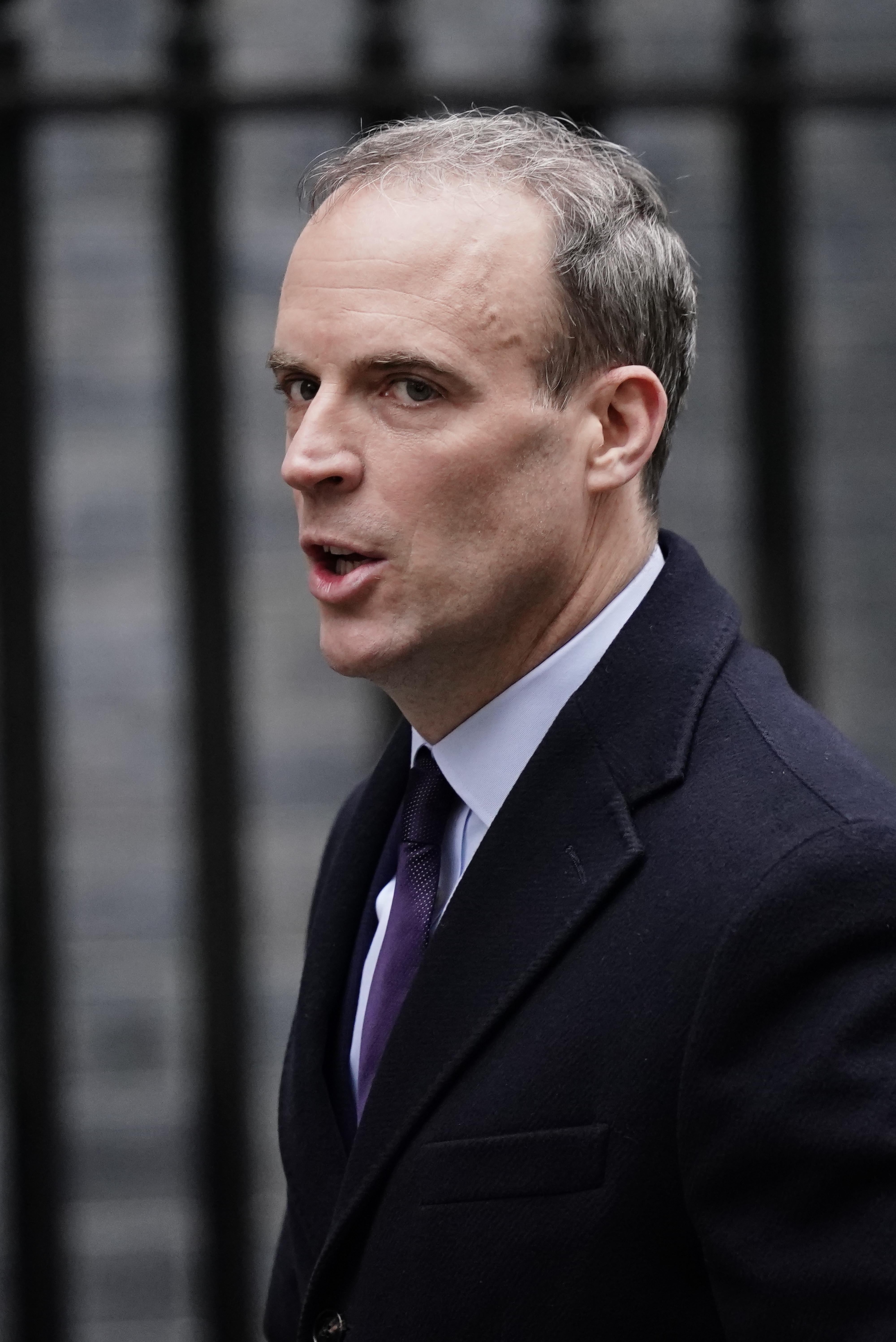
The Justice Secretary has dismissed criticism of plans to double magistrates’ sentencing powers in a bid to tackle the backlog of cases waiting to be dealt with by criminal courts.
Magistrates will be able to hand out jail terms of up to a year – up from the current maximum of six months – in the latest effort announced by Dominic Raab to reduce the number of outstanding cases and the pressure faced by crown courts during the coronavirus pandemic
But critics branded this a “sticking plaster” solution and “distraction” politics, warning the plan could have the opposite effect and add to the backlog.
The issue with a backlog, which was there before the pandemic, is not about sentencing powers - that's really rearranging the deck chairs
Human rights barrister Kirsty Brimelow, the vice chairman of the Criminal Bar Association (CBA), said the prospect of being jailed for longer by a magistrate could see defendants elect to have their case heard by a crown court.
She told Radio 4’s Today programme: “The issue with a backlog, which was there before the pandemic, is not about sentencing powers – that’s really rearranging the deck chairs.
“It is about lack of investment in the criminal justice system … it needs money into the system, and it needs barristers who are actually going to prosecute and defend in these cases. And what we’re seeing is a huge attrition of barristers leaving the profession.”
Asked about criticism of the measures, Mr Raab told BBC Breakfast: “Well, it’s not correct.”
Responding to suggestions that the plan would not work because more people may elect to go to the crown court or may appeal against longer sentences handed down by magistrates, he told Radio 4’s Today programme: “No, I don’t accept that. We looked at this very carefully.
“This measure … will mean cases can come to court quicker, which means greater justice for victims, more criminals seeing justice earlier. Our estimate is it will reduce the strain on the crown courts by around 1,700 cases.”
A survey of CBA members showed 96.5%, of 1,967 who responded, are willing to “take action now” – which could see barristers go on strike – if there is not a “substantial” increase in criminal legal aid fees.
“That is really, we would say, where the Government – the Ministry of Justice – should be focusing and not upon rearranging and trying to fiddle with powers of magistrates courts, because if you don’t have the lawyers actually defending or prosecuting in these cases, these cases are not going to go anywhere”, Ms Brimelow added.
Mr Raab said “we want to work” with the CBA, telling Today: “The one thing that would hold back recovery in the court system is if the Criminal Bar Association and criminal lawyers go on strike, and I don’t think that will be supported across the wider sectors of the justice system, and I certainly don’t think that will be supported by the public.”

The Ministry of Justice estimates giving magistrates greater sentencing powers could free up almost 2,000 extra days of crown court time a year.
It would allow magistrates to sentence some of the more serious cases they hear, such as fraud, theft and assault. At present, crimes warranting a jail term of more than six months have to be sent to a crown court for sentencing.
The changes, expected to come into force in the coming months, will only apply to so-called “either-way” offences which can be dealt with by magistrates or crown courts. It will mean defendants can still opt to have their case heard by a jury in a crown court if they wish.
Training will be provided by the Judicial College to make sure the powers are used “consistently and appropriately”.
An amendment to the Judicial Review and Courts Bill will mean the Government will have powers to reverse the change if needed.
Last year, Whitehall’s spending watchdog the National Audit Office warned the criminal courts backlog would “remain a problem for many years” after the number of outstanding cases in the crown courts reached record highs of almost 61,000 and more than 364,000 in magistrates’ courts before beginning to slowly reduce.
According to a survey of 2,181 adults in England and Wales commissioned by criminal justice consultancy Crest Advisory in October and November, 69% said magistrates should have greater sentencing powers so they could deal with more cases and 68% called for extra funding for the criminal justice system.







